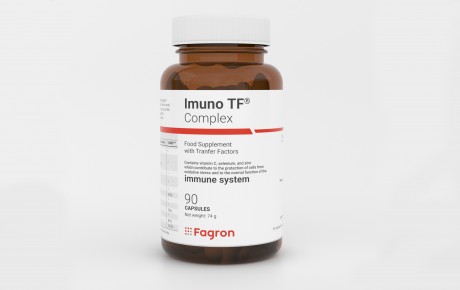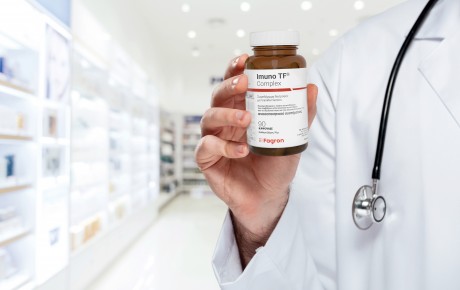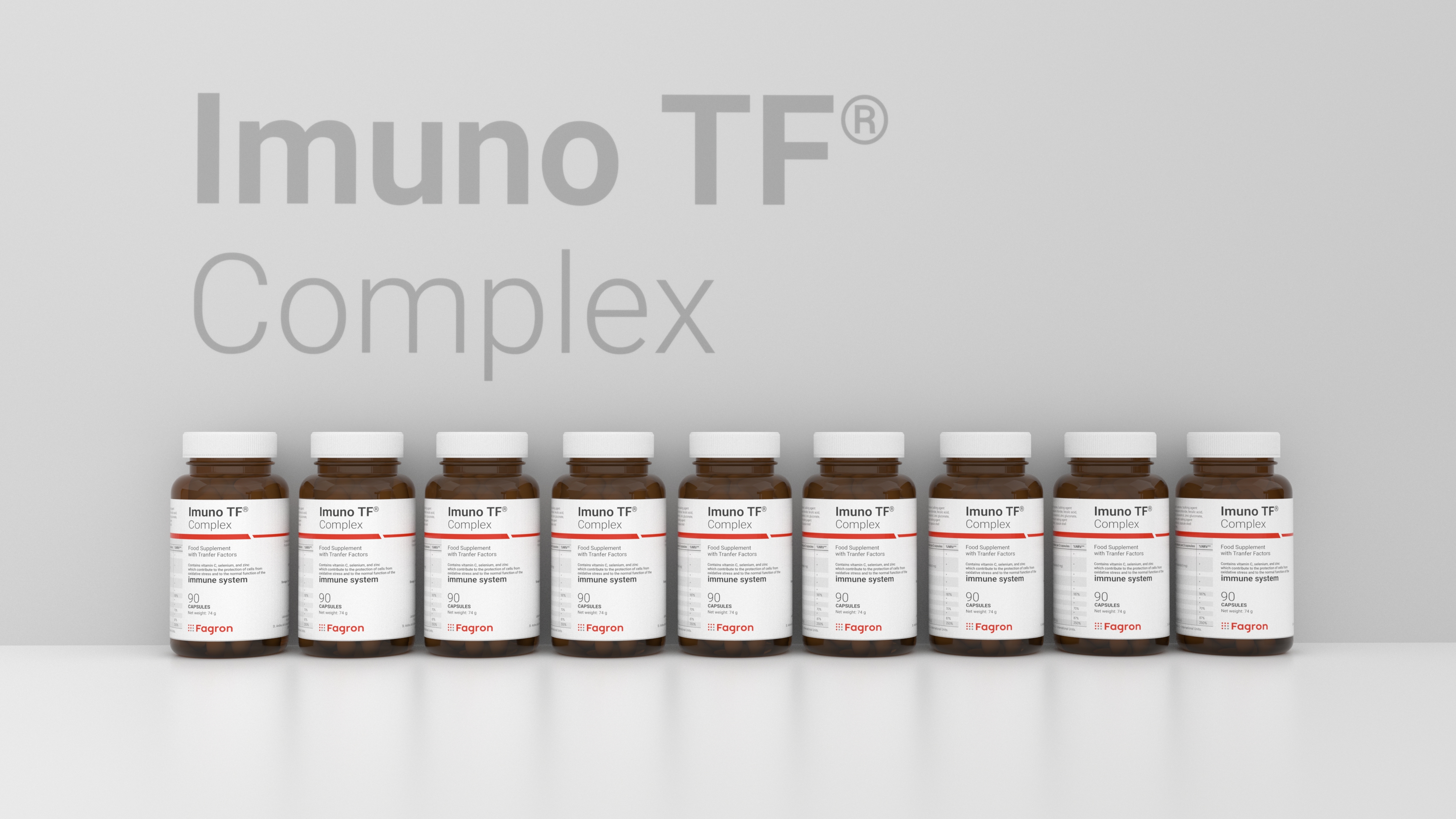We live in a world that is more prone to put us in contact with infectious virusses and other microorganisms, threatening our immune system and, consequently, our lives. Imuno TF® Complex was specially developed for our “new normal” life: it helps our immune system to protect our body from diseases.
Το Imuno TF® Complex is a Food Supplement with Tranfer Factors.
Contains vitamin C, selenium, and zinc which contribute to the protection of cells from oxidative stress and to the normal function of the immune system.
The Imuno TF® Complex is a blend of carefully chosen ingredients that can play a role on the regulation of the immune responses though multiple pathways, contributing to a normal function of your immune system and also, to the protection of cells from oxidative stress.

Most of products in the market are addressed to strengthen the immune system as a whole. However, a strong immune response is not always welcome, as it can trigger an hyperinflammatory reaction or autoimmune diseases. Imuno TF® Complex was developed to regulate the immune system: recent studies show that Imuno TF® Complex present in the formulation can increase Th1 responses and decrease Th2 responses, providing an adequate balance for the immune responses.

The components of the Imuno TF® Complex have scientific ground and were already tested in human patients with positive results. Check out the scientific articles.
Case report: Imuno TF® Complex for COVID-19.
Case report: Imuno TF® for warts.
Review article: Imuno TF® Complex and their actions in COVID-19.
Clinical, retrospective study: Imuno TFComplex for COVID-19.
-
Imuno TF®
Ultra-purified and non-allergenic blend of oligo- and polypeptides known as transfer factors. Regulates the immune response, increasing the natural defenses and avoiding overproduction of inflammatory and allergenic molecules.
- Uncaria tomentosa (Cat’s claw)
Cat’s claw has immunostimulant, antioxidant and anti-in-flammatory activities. Moreover, it can decrease lipid peroxidation and reduce the level of reactive oxygen species and presents activity against bacteria and virus.
- Astaxanthin
(from Haematococcus pluvialis)
Astaxanthin is often referred as a “super-antioxidant” molecule, because of its capacity to reduce free radicals and oxidative stress: 65 times greater than vitamin C, 54 times more than β-carotene, and 100 times more than α-tocopherol. Additionally, the molecule also presents immunomodulating activity.
- Zinc
Zinc is a crucial element for normal development and function of cells mediating nonspecific immunity, such as neutrophils and natural killer (NK) cells; therefore a good zinc status is recommended to support an effective immune function.
- Selenium
Selenium can contribute to the normal function of the immune system through the stimulation of CD4+ Th1 and CD8+ lymphocytes, NK cells, and macrophage phagocytosis. Selenium is also a potent antioxidant that con-tributes to the protection of cells from oxidative stress.
- Vitamin D3
Vitamin D3 plays a role on the regulation (inhibition) of B cell proliferation and differentiation (B cells are recognized as key factors in inflammation, as they can secrete inflammatory cytokines). As Vitamin D3 exhibits an-ti-inflammatory properties, it could therefore potentiate innate immunity while controlling the potentially harmful inflammatory response. This immunoregulatory effect could in turn prevent hyperinflammatory response caused by respiratory tract infections.
- Vitamin C
Vitamin C contributes to the normal functional of the immune system. Vitamin C can increase lymphocytes B and T proliferation and differentiation at a controlled rate. It can also potentially increase the activation of NK-cells, improving immune response against foreign invaders.
- Ferulic acid
Ferulic acid induces various peroxidase enzymes (enzymes that neutralize hydrogen peroxidase, a reactive oxygen species) and promote synthesis of glutathione (antioxidant). It also provides potential protection against tissue damage (including lung) coming from excessive inflammatory response.
- Resveratrol
(from Polygonum cuspidatum)
Resveratrol can inhibit the production of inflammatory factors and reduce NF-κB, TNF-α, IL-1 and IL-6. Res-veratrol can potentially increase the activation of NK-cells, improving immune response against foreign in-vaders.
- Spirulina
Spirulina can potentially increase the activation of macrophages and NK-cells, improving immune response against foreign invaders, and of T-cells functions, promoting their activation and proliferation.
- N-acetyl cysteine
N-acetyl cysteine might be expected to help to prevent and control RNA virus infections.
- Glucosamine sulfate potassium chloride
Glucosamine might be expected to help to prevent and control RNA virus infections.
